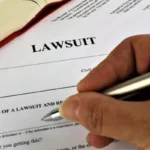A Final Hearing takes place if the Eviction is not settled. As a result, the Court renders a decision. The Effect of a Final Judgment of Eviction in Florida impacts Landlords and Tenants. Therefore, if you have questions about the Process, contact the Law Office of Brian P. Kowal, PA.
The Effect of a Final Judgment on Landlords
A Landlord’s objective is to obtain a Judgment. Once it is entered, the Clerk executes a Writ of Possession. After it is signed, it is sent to the Sherriff. As a result, they post a 24 hour notice on the Door. If they do not vacate, the Sheriff will secure the property and remove their belongings.
It is likely that they lost a great deal of rental income during the Eviction. If the Tenant failed to pay rent before the Process began, they usually do not pay during the case. Therefore, after they vacate, they can rent to a new Tenant.
How is a Tenant Affected?
Unfortunately, the Effect of a Judgment can be drastic. Not only will they be removed, it also means that it appear be on their credit for 7 years. This can be drastic because it affects their ability to find a place to live. If a Landlord runs a search and discovers an Eviction, they will be less likely to rent to them. Therefore, if they are being evicted and are unable to pay, they should work out an agreement.
Can a Tenant prevent a Judgment?
They certainly can. For example, if they settle or are victorious in the case, the Judgment will not be entered. Further, if a Landlord obtains a Judgment but did not inform the Court that they were current with rent, they can file a Motion to Stay the Writ. If it is granted, they can remain in the property until a hearing takes place. It is important that they pay during the 3 Day Notice period to avoid a Judgment.
If you have questions about the Effect of a Final Judgment of Eviction in Florida, contact the Law Office of Brian P. Kowal, PA at (954) 990-7552.






